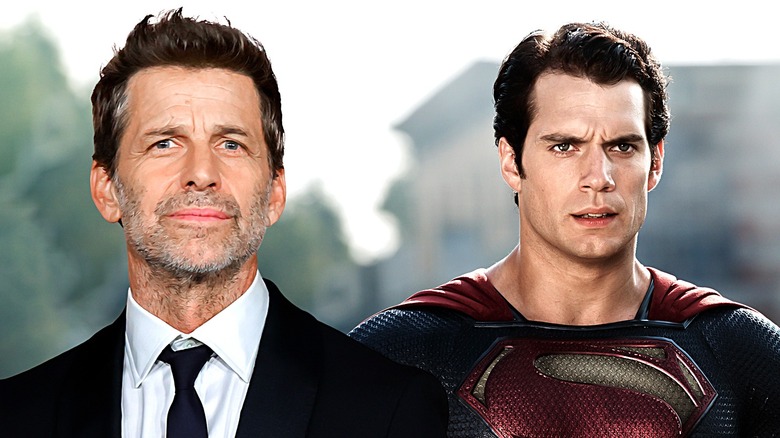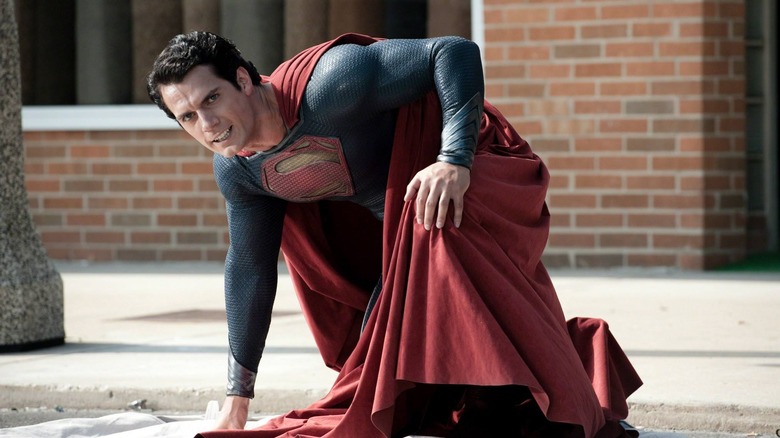Why Superman Would Be 'Fake' If He Didn't Kill Zod, According To Zack Snyder
Years after his last DC film, Zack Snyder's unique rendition of the comic book universe continues to be polarizing. His supporters still praise the grim, gritty DC Extended Universe that was — a world where Superman makes hard, violent choices and Batman isn't so squeamish about killing or using guns. DC's cinematic future is heading in a distinctly different direction under the guidance of "Guardians of the Galaxy" director James Gunn and the newly minted DC Studios, but some remain nostalgic for Ben Affleck, Henry Cavill, and Snyder's moral grayness.
One particular point of contention for years has been Superman killing Zod in a controversial scene at the end of Snyder's "Man of Steel." While some enjoy seeing a more down-in-the-mud version of Clark Kent, many comic book traditionalists have criticized Snyder for missing the point of the character by making him commit murder. In an interview with GQ, Snyder once again addressed the controversial scene, in which Superman breaks Zod's neck to prevent his laser vision from killing innocent civilians.
"He's not going to stop," Snyder said, referring to Zod's assault on Earth. "He's not going to negotiate an outcome. So it was either Zod or us. And that was pretty much the game, there was no middle ground." According to the director, Superman wouldn't be much of a hero at all if he couldn't make impossible decisions. "If Superman can't handle that position, then he's fake."
Of course, not every Superman fan will agree with that take.
Zack Snyder says Superman proves his humanity in Man of Steel
In the same interview with GQ, Zack Snyder called "Man of Steel" his most grounded, naturalistic film — an irony, he admitted, given that the main character is an all-powerful hero from outer space. He discussed the idea of a crucible moment helping a character ground themselves — even someone like Superman who tries to find an ideal outcome in every situation.
"He's got to address the scenarios that come to him," Snyder said. "He can't pick and choose, as you can't pick and choose." According to the director, moments where a character has to confront something "outside your morality, your normal morality that you can deal with," are crucial. "If the character can respond in a way that solidifies his humanity, then he's stronger," he said.
The counterargument is still valid. Most major superheroes are symbols of some sort, both in their fictional worlds and in our own. Superman has historically represented the desire to truly do good and reduce harm — a genuine, passionate drive to make the world a better place. Ultimately, it's the writer's decision to put characters in different situations, including ones where they're inclined to break a few bad guys' necks. The debate will likely continue indefinitely because it's really a matter of opinion: Should we always keep our heroes true to the same absolute values, or push them and see how they break? When it's a character like Superman, who's had so many different incarnations, journeying off the beaten path isn't necessarily a bad thing.
Regardless of personal opinion, it seems certain that James Gunn's Superman will be very different from Snyder's.

